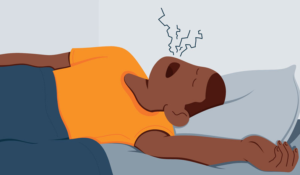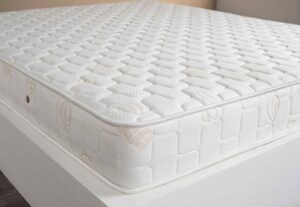Bad Sleep Habits and How to Break Them

The science of sleep has come a long way in recent years. In the past, researchers could only dream of understanding what goes on while we snooze. But every day brings us closer to understanding the science behind our sleep.
The stresses of modern day life have a serious impact on us that we never evolved to adapt to. Working at computers, working long hours in bright rooms and the connectivity to the world through our phones all impact how we sleep.
So, What Bad Sleep Habits Do I Have?
Drinking coffee
If you’re a fan of coffee, caffeinated drinks or tea, you could be affecting your body’s natural sleep cycle. But this doesn’t mean you have to give up this luxury. Simply ceasing to have any of these treats after 5 pm, or around 5 hours before you plan to sleep, will allow the caffeine to dissipate in time for a good night’s sleep.
If you’re sensitive to caffeine, it’s best to avoid consuming coffee or other caffeinated beverages in the afternoon or evening, as the effects of caffeine can last for several hours. Additionally, it’s important to be mindful of how much coffee you’re drinking throughout the day, as excessive caffeine consumption can lead to feelings of anxiety, restlessness, and difficulty sleeping.
bright lights
Having bright lights on before bed tells your brain that it’s not time to sleep. Consider using a lamp instead of the main light. If you have to use a computer before bed, many apps and devices have ‘night mode’ which changes the color and/or brightness to help your brain understand that sleep is coming.
Bright light exposure, particularly blue light, can suppress the production of melatonin, a hormone that regulates your sleep-wake cycle. This can make it harder to fall asleep and stay asleep, leading to disrupted sleep patterns and daytime sleepiness.
heavy meals
Eating heavy meals before bed can be a bad sleep habit because it can interfere with your ability to fall asleep and stay asleep. When you eat a large meal close to bedtime, your body has to work harder to digest the food, which can cause discomfort, bloating, and indigestion. This can make it harder to relax and fall asleep.
Sleeping in a room that’s too bright or noisy:
Sleeping in a room that’s too bright or noisy can be a bad sleep habit because it can make it difficult to fall asleep and stay asleep. Exposure to bright light before bed can interfere with the production of melatonin, a hormone that helps regulate sleep-wake cycles, and can make it harder to fall asleep. In addition, noise can disrupt your sleep and cause you to wake up frequently throughout the night, even if you’re not consciously aware of the noise.
Using electronics before bed:
Texting in bed is a crutch many of us succumb to. Not only can this prevent us from falling asleep but it may disrupt your sleep with notifications and buzzes. A good habit is to tell any family and friends that you’re going to sleep, giving closure to any conversations before setting your phone on silent. Not only does this prevent disturbance but can set your mind to rest knowing that you ended your conversations, giving you less to think about as you try to doze off.
Watching TV before bed is a surefire way to tell your brain to stay awake. It may seem harmless enough relaxing to a light comedy before bed but in reality, this messes with your brain’s rhythm. The artificial light can trick your brain into thinking it’s still daytime and any subsequent sleep won’t have the restorative qualities you need.
Not getting enough exercise
Not getting enough exercise can be a bad sleep habit because physical activity is important for regulating your sleep-wake cycle. Regular exercise can help you fall asleep more easily, stay asleep longer, and experience better quality sleep overall. Exercise can also help reduce stress and anxiety, which can interfere with your sleep.
If you’re not getting enough exercise, it’s important to find ways to incorporate physical activity into your daily routine. This can involve going for a walk or jog in the morning, taking the stairs instead of the elevator, or joining a fitness class or sports team. Aim for at least 30 minutes of moderate-intensity exercise most days of the week, but be sure to talk to your doctor before starting a new exercise program.
Recommended Reading:
When you sleep your body devotes its resources to resting, processing the day’s events and strengthening neural links in your brain. Eating before you sleep, while difficult to avoid for professions like bartending and hospitality, means that your body is dedicating fewer resources to sleeping so that it can digest your meal.
A great way to break these habits is to have a nighttime routine. If you have a specific set of activities you do before bed it can help tell your brain that you’re planning on sleeping soon, giving it time to prepare. Setting a time where you stop using bright screens (half an hour to an hour), brushing your teeth, turning down the lights and getting into bed to read a book, can train your brain to know that when these occur sleep is coming.






